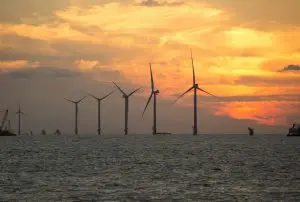As COP26 approaches, Brevia will be tracking the latest milestones in the UK’s preparations for the upcoming climate conference. This week’s developments cover the renewed UK/US cooperation on tackling climate change, the creation of a new Green Technical Advisory Group to progress the UK’s Green Taxonomy and the new Office for Environmental Protection.
1. UK/US Climate Cooperation
The UK and the US have signed a new and revitalised Atlantic Charter to strengthen their cooperation, including on tackling climate change. The Charter includes a section on climate & nature and sets out both countries’ commitments to achieving an ambitious outcome at COP26, as well as a commitment to work together in encouraging strengthened climate targets from other countries.[1]
Additionally, the two countries have agreed to develop a new partnership on science and technology to lead the world in research and development. The agreement aims to strengthen cooperation in areas such as emerging technologies, resilience and security of supply chains.[2]
The renewed agreement comes ahead of the G7 Summit which will take place over the next two days (11-13 June), with vaccines and climate change featuring high on the agenda. All the countries attending have long-term net zero targets, including interim carbon cutting targets for the next decade. [3] Additionally, all of the G7 countries have agreed to end the funding of coal overseas in a bid to accelerate the global transition away from fossil fuels.[4]
2. New Expert Group to work on UK Green Taxonomy
HM Treasury has set up a new independent expert group, the Green Technical Advisory Group (GTAG), to oversee the Government’s delivery of a ‘Green Taxonomy’ and provide advice on standards for green investment. [5]
The group will be chaired by the Green Finance Institute and includes representatives from the business community, NGOs and advisory agencies. The full membership can be viewed here.
The Green Taxonomy was initially announced by the Chancellor in November 2020 and will set out a common framework for investments that can be defined as environmentally sustainable. It is hoped that the Taxonomy will tackle the growing issue of greenwashing, and support consumers in understanding the impact a firm is having on the environment.
An Energy Working Group will also be created as part of the GTAG to provide advice on key technologies such as hydrogen, carbon capture, utilisation and storage, and how to address nuclear power in the taxonomy.
3. First Board members of the OEP appointed
The UK Government has appointed the first Board members for the new Office for Environmental Protection (OEP).
Dr Paul Leinster CBE, Professor Richard Macrory, Professor Dan Laffoley and Julie Hill MBE have been announced as the first non-executive members of the Board. They will join the OEP’s chair, Dame Glenys Stacey in working to ensure the implementation of environmental law.[6]
The OEP is the new statutory body created through the Environment Bill. The Bill, currently in the House of Lords, is viewed as an important piece of legislation for the Government in its preparations for COP26 and is expected to received Royal Assent ahead of the summit.
The Government has been keen to showcase its commitment to leading on environmental issues, but has faced criticism over the delays to the Environment Bill, which had to be reintroduced to Parliament owing to Parliamentary time constrains in the previous session. More recently, the Government has faced criticism that the new environmental watchdog will lack sufficient powers and independence from Ministerial intervention.[7]
The OEP will replace the European Commission as the domestic watchdog for environmental regulation following Brexit and will work to provide scrutiny and advice on the implementation of environmental law, as well as monitor the progress against environmental targets.
BREVIA CONSULTING PROVIDES STRAIGHTFORWARD POLITICAL AND COMMUNICATIONS SUPPORT TO BUSINESSES AND ORGANISATIONS
Discover how Brevia can help you and your organisation by contacting the Brevia Energy Team on 020 7091 1650 or emailing us at: contact@brevia.co.uk
Notes
[1] Prime Minister’s Office, ‘New Atlantic Charter and Joint Statement agreed by the PM and President Biden’, 10 June 2021, Link
[2] BEIS, ‘UK and US agree to strengthen ties in science and technology’, 10 June 2021, Link
[3] The Guardian, ‘G7 leaders face make-or-break moment in climate crisis’, 11 June 2021, Link
[4]The Guardian, ‘Richest nations agree to end support for coal production overseas’, 21 May 2021, Link
[5] Department for Business, Energy and Industrial Strategy, ‘New independent group to help tackle greenwashing’, 9 June 2021, Link
[6] Department for Environment, Food & Rural Affairs, ‘First new board members of Office for Environmental Protection’, 7 June 2021, Link
[7] Financial Times, ‘UK post-Brexit green watchdog will be weaker than EU predecessor, warns law body’, 9 June 2021, Link




